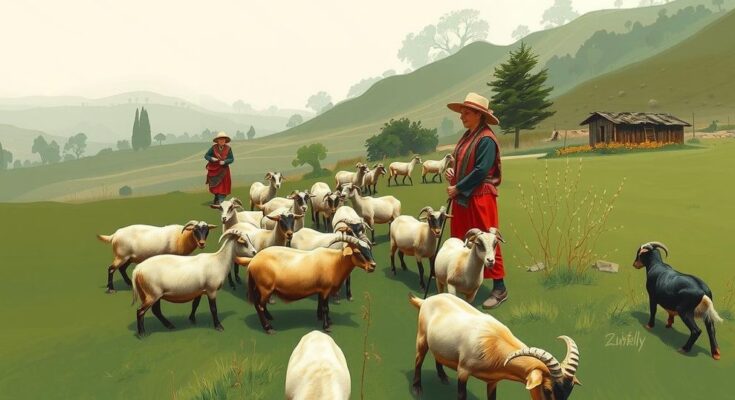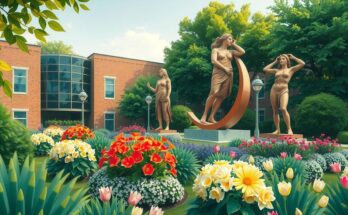Women goat herders in Ovalle, Chile, are facing climate change, particularly severe drought, by adapting traditional practices to improve their cheese production. With historical roots dating back to 1544, these herders are garnering international recognition while tackling challenges stemming from water scarcity. The resilience and innovations displayed by these women reflect their commitment to heritage and the future of goat herding in Chile.
The heritage of goat herding in Chile dates back to 1544. Women herders in Ovalle are facing the challenges of climate change, particularly prolonged drought, by enhancing the quality and variety of their cheese products, which has led to international accolades. Despite the drought conditions reducing water availability and pasture quality, these herders remain resilient and innovative, adapting traditional practices to meet contemporary challenges.
In 2024, the La Serena Station recorded only 89.2 millimeters of rain, indicating a continued water scarcity for livestock. The Limarí River reservoir was alarmingly low at only 15% of its capacity. Consequently, many herders have transitioned to confining their goats in stables or semi-stabled conditions, allowing for daily grazing but altering the traditional grazing system.
Women such as Yasna Molina of Villaseca exemplify this transition. Her cheese, Anqas, earned first prize at the 2024 Copa América in Ecuador. Molina, who has struggled with a 25-year drought, supplements her goats’ diet with purchased feed to maintain milk production standards necessary for cheese making, reflecting her innovative adaptations to the climate crisis.
The region hosts 5,391 goat cheese producers, with 80% being small-scale herders—over 60% of whom are women. However, the effects of climate change are compelling herders to migrate to higher ground in the Andes in search of sustainable grazing. Manuel Portilla, a herder, vividly described his difficult journey and the challenges that followed unexpected weather conditions that left him with a reduced herd after heavy rains and snow.
The repercussions of climate change on goat herding differ across herder types, impacting traditional nomadic practices and emphasizing the lack of available water. Experts like Claudia Torres highlight that the overexploitation of resources is accelerating climate change, stressing the urgent need for effective water management strategies to assist traditional herders.
An award won by Yasna Molina has inspired her peers, leading to a newfound appreciation for their cheese. Additional innovations include drip irrigation systems for growing fodder and diversifying cheese varieties to meet rising consumer demands. Other herders are expanding production through unique flavors and cheese varieties, reflecting both a commitment to tradition and adaptability to market trends.
Historically, human cheese production from goat milk dates back 4,000 years, and international demand for goat cheese is expected to grow significantly, projected to reach USD 18 billion by 2030. Chile’s herders are eager to harness the terroir—a combination of environmental factors—for their cheese, learning from European practices to achieve designations of origin, which would add value to their products and protect indigenous breeds like the Criollo goat.
In conclusion, the perseverance of women goat herders in Chile amid climate challenges underscores both their commitment to cultural heritage and their adaptability in innovative practices. By enhancing product quality and exploring new markets, these herders are safeguarding their livelihoods and preserving traditions for future generations. However, pressing issues surrounding water management and climate adaptation strategies remain critical to ensuring the sustainability of their practices moving forward.
Original Source: www.globalissues.org




